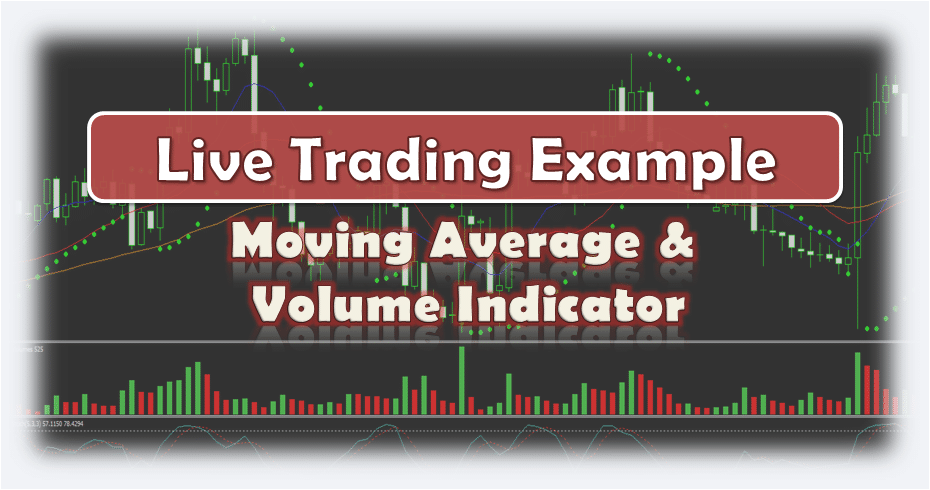This time we combined a 10-period and a 20-period Simple Moving Average indicators with the Volume indicator. We managed to recognize signals from these tools and to do a successful long trade in the USD/JPY chart.
Live Trading Example
Moving Average and Volume Indicator Signals
- The 5-minute chart of the USD/JPY shows a price increase and a big distance between the two SMAs.
- This means that the price might be exiting a consolidation in a bullish direction.
- That consolidation resembles a Double Bottom chart pattern.
- At the same time, the Volume indicator shows increasing trading volume, which means that the price might create a big move.
- On the 1-minute chart, we see that the slower 20 SMA has supported a few times the faster 10 SMA.
- On the 1-hour chart, we see that the general bullish trend is strong.
- The 1-hour chart shows that the price is bouncing from the 20-period SMA.
- The 15-minute chart shows a bullish SMA crossover, which supports the general bullish idea.\
Stop Loss and Target of the SMA Trade
We bought the USD/JPY placing a Stop Loss order at the top between the two bottoms of the Double Bottom pattern.
We didn’t state a certain target on the chart because we had no clue for how long the eventual price increase might have lasted. Therefore, we observed the trade very carefully, which put us in a very good position to exit the market.
The price created a shocking increase just for seconds. The good thing is that we were constantly watching my trade. We considered that it is better to exit the trade on the top of that move without waiting for a further extension. After all, volatile price moves often continue with big pullbacks. Therefore, we closed the trade and collected the profit.
Bottom line, the trade generated 0.22% for less than 20 minutes.
